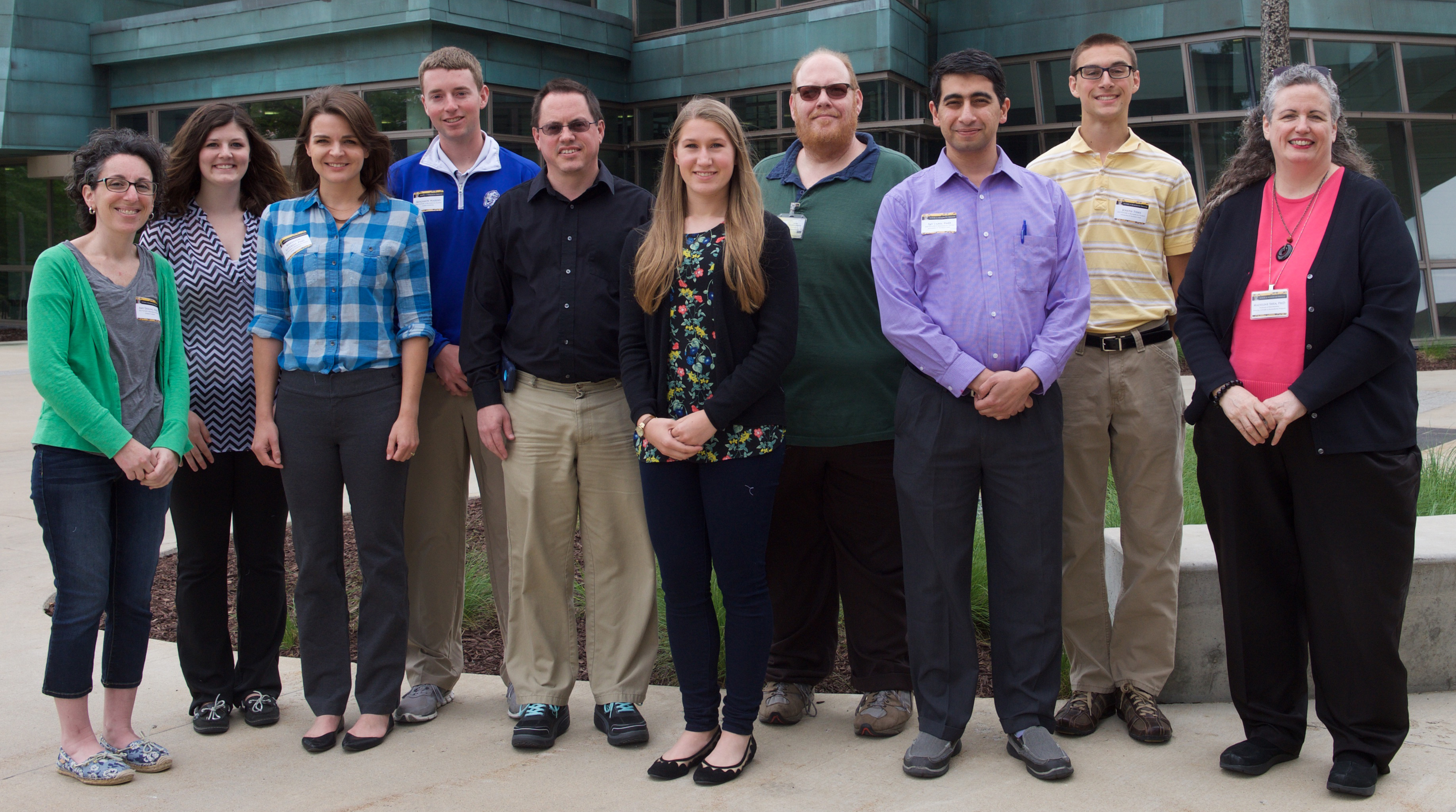2017 Participants
Coe College | Cornell College | Drake University | Simpson College | Waldorf University | University of Northern Iowa
Coe College
FUTURE in BiomedicineSM Senior Fellow: Michael Leonardo, PhD, Professor and Chair, Department of Biology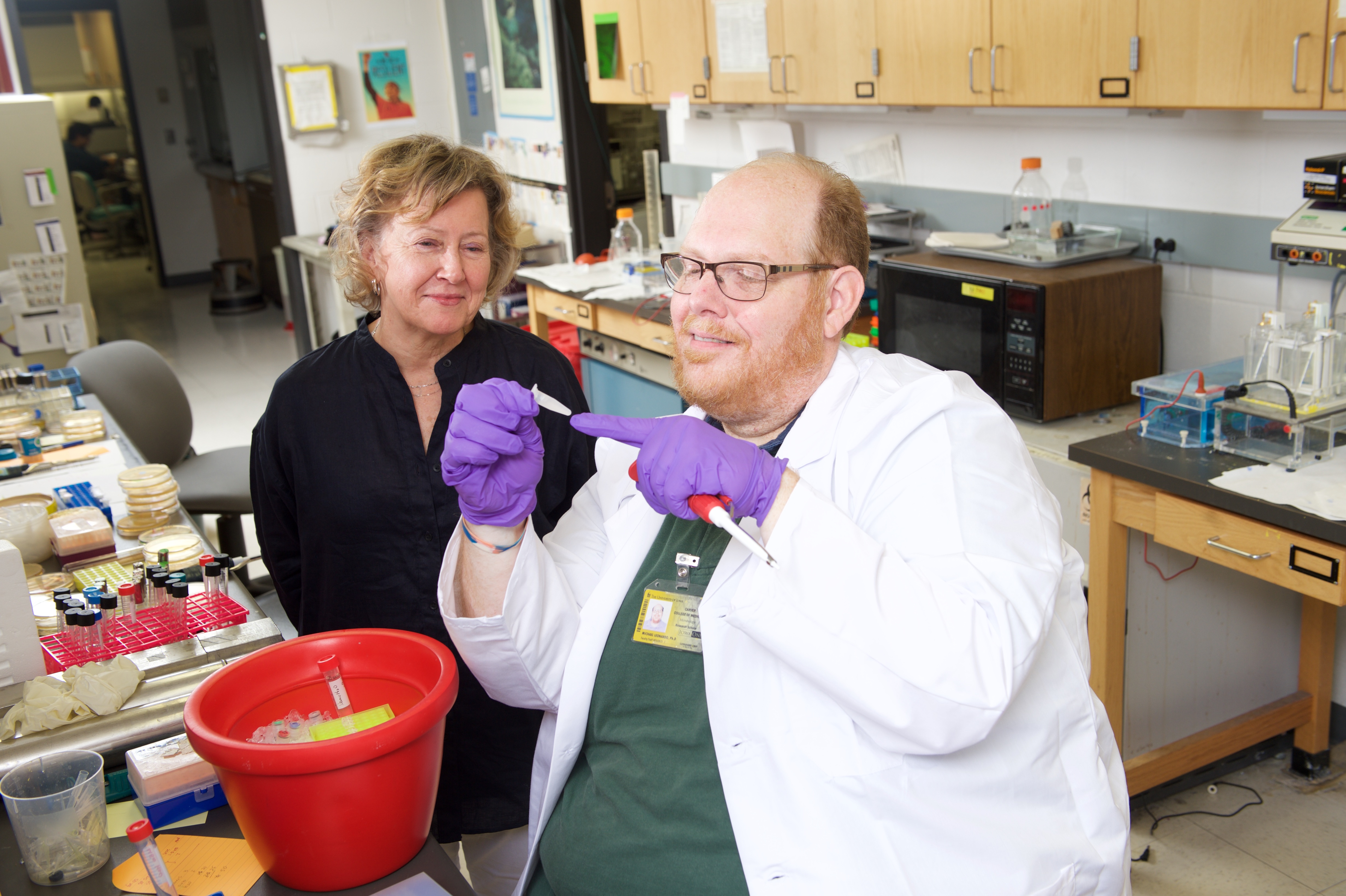
UI Faculty Host: Linda McCarter, PhD, Professor of Microbiology and Immunology
Project: Cooperation and Communication Among Bacteria: Vibrio-Shewanella
Cornell College
FUTURE in BiomedicineSM Senior Fellow: Barbara Christie-Pope, PhD, Professor and Chair of Biology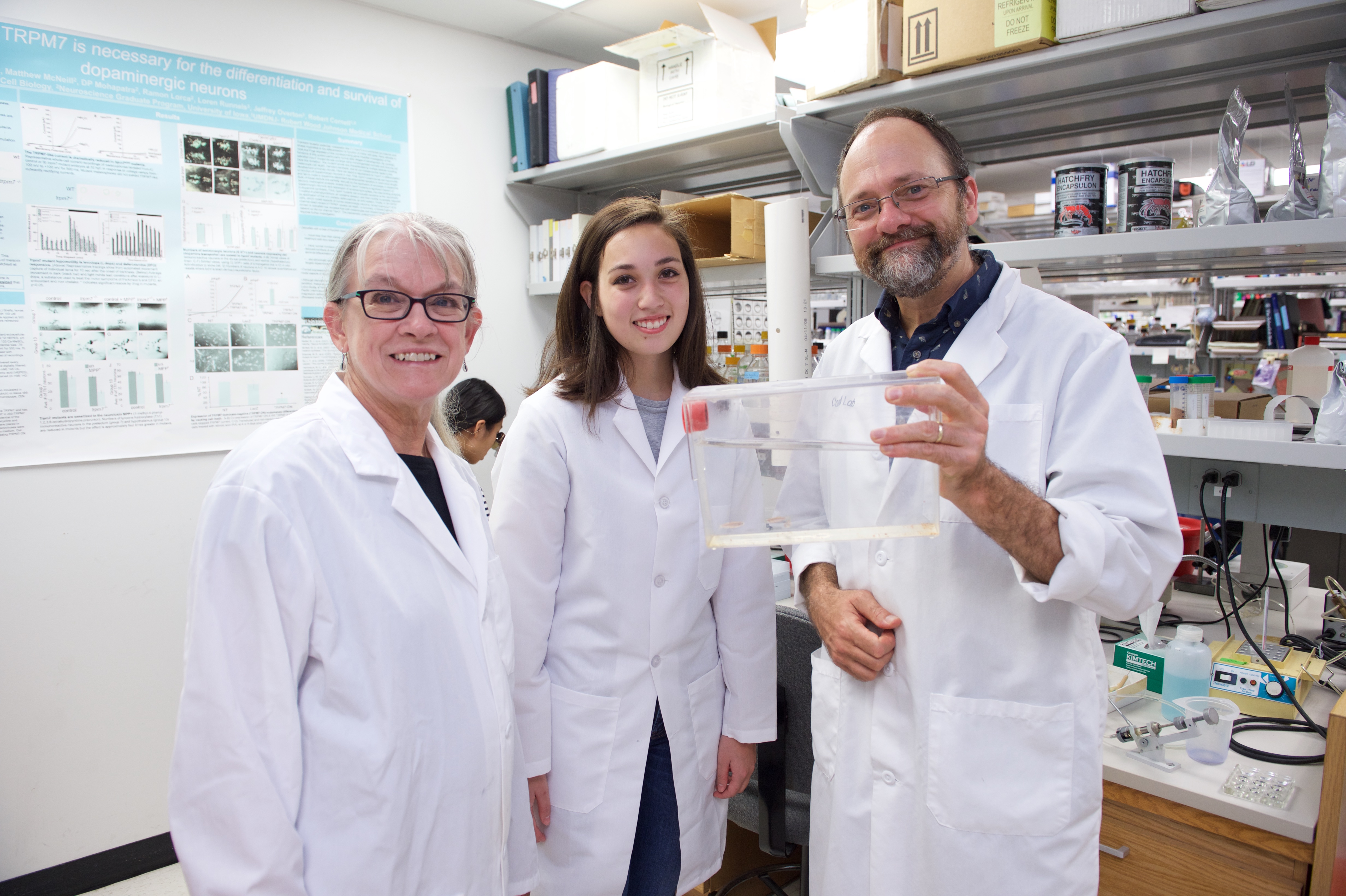
Student Research Assistant: Nina Kahn
UI Faculty Host: Robert Cornell, PhD, Professor of Anatomy and Cell Biology
Project: The Ultrastructural Effect and Cytotoxicity of Manipulation of Vesicular Proteins in Dopaminergic Neurons
Testimonial:
This summer was my fourth opportunity to work in the laboratory of Rob Cornell, PhD, Department of Anatomy and Cell Biology, as part of the FUTURE in Biomedicine program. I continue to return because this experience invigorates me and reinforces my passion to be a scientist doing research. In addition, I have the delightful opportunity to work one-on-one with a student from my institution and with other researchers in the laboratory. My student and I both benefit. Nothing engages a student more than working on a real problem that places the knowledge they have gained from a course into perspective. The growth of my student this summer has been phenomenal. I have also benefited in many ways. I am bringing new research questions and techniques to the courses I teach; I have also established connections with facilities at the University of Iowa for my other research projects that are not directly a part of the FUTURE collaboration. The acronym FUTURE is totally appropriate for the experiences that I have had and hope to continue having. Thanks FUTURE!
Barbara Christie-Pope, PhD
Professor and Chair of Biology
Drake University
FUTURE in BiomedicineSM Senior Fellow: Adina Kilpatrick, PhD, Assistant Professor of Physics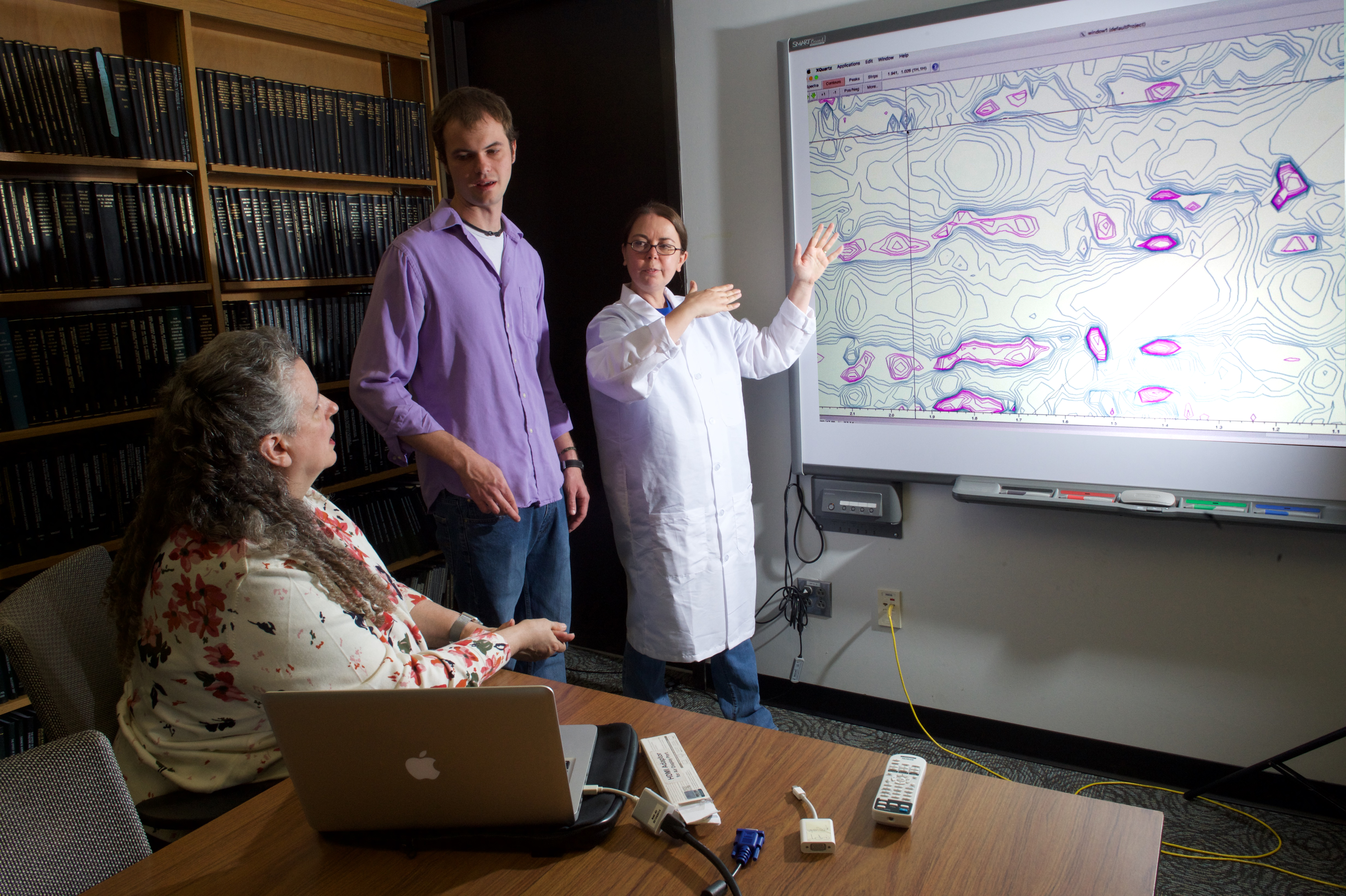
UI Faculty Host: Madeline Shea, PhD, Professor of Biochemistry
Project: Calcium-Mediated Regulation of Ion Channels
Drake University
FUTURE of BiomedicineSM Fellow: Meredith Luttrell, Assistant Professor of Kinesiology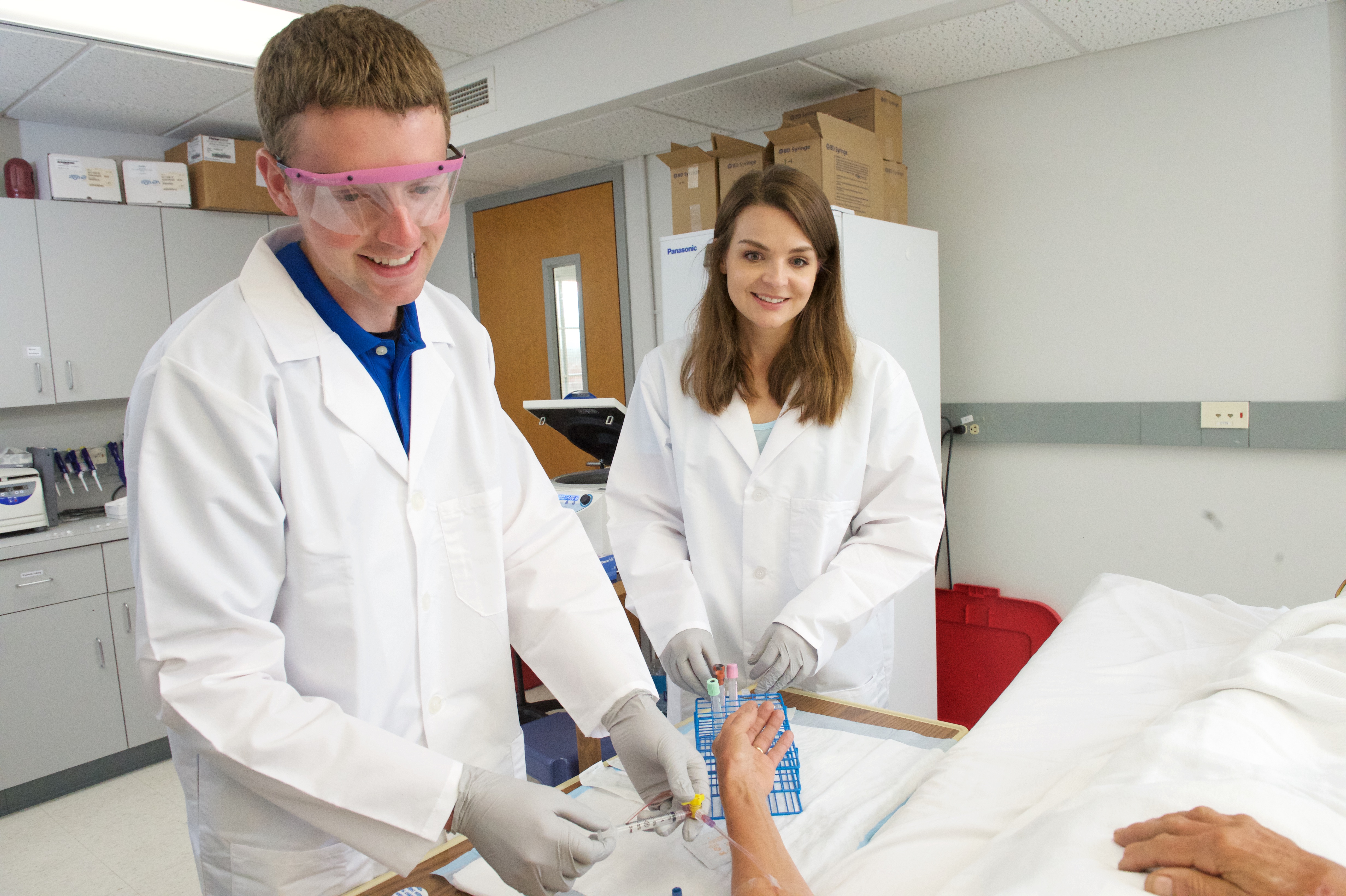
Student Research Assistant: Benjamin Mardis
UI Faculty Host: Darren Casey, PhD, Assistant Professor of Physical Therapy and Rehabilitation Science
Project: Effect of age on angiogenic potential in response to an acute bout of dynamic exercise
Testimonial:
This summer has been a valuable experience professionally, both in terms of research and in developing skills as a mentor for undergraduate students. As an early career faculty that is new to the Midwest, participating in this program has helped me to establish research connections at the University of Iowa, and has helped to jump start my own line of research that I will be able to continue at Drake. I anticipate applying as a senior fellow in the future in order to continue the collaborations established this summer. The
UIHC faculty, trainees, physicians, and students at we worked over the summer with have been generous with their time and enthusiastic about their own participation as a host lab. Separate from the research itself, this summer has also been a valuable experience in developing skills as an undergraduate research mentor. As a new faculty member, this has been my first experience mentoring an undergraduate student from the development of the project through the completion of the study. Being able to observe the growth of my student Ben as he became more confident in his ability to conduct research has been rewarding. I've also become more conscious of my own style of mentoring undergraduate students, and I hope to be able to refine my mentoring style to better benefit students in the future.
Meredith Luttrell, PhD
Assistant Professor of Kinesiology
I want to give a huge thank you to the FUTURE program. This program provided many unique opportunities for me; in particular, large-scale research, observation hours with many different physical therapists, and a chance to strengthen new connections made within the Physical Therapy department on campus. While on campus at Iowa, I was able to experience first-hand what a career in research looks like. I worked alongside great professionals who aided my professor and I in our research, while also completing other projects of their own. They really helped me to understand the purpose of each step in the research project, giving me very helpful feedback on my work throughout the summer. It was a great research experience in which I played a role in the daily grind of data collection, subject interaction, and benchwork.
My future ambitions are to continue schooling to become a Doctor of Physical Therapy. Working with a host lab inside the Physical Therapy department allowed me to create new connections with other professors and Physical Therapy faculty. This also led to multiple opportunities for observation experiences with Rehab Therapies in the UI Hospitals. I am very thankful for these connections I made and for everything I learned from Dr. Casey, his lab, and Dr. Luttrell throughout research this summer. I would definitely recommend the FUTURE program to anyone considering a career in science, regardless of specific field. There are many great areas to explore and many opportunities to be had while at the University of Iowa.
Ben Mardis
Undergraduate Researcher
Simpson College
FUTURE in BiomedicineSM Fellow: Amy Doling, Professor and Chair, Department of Biology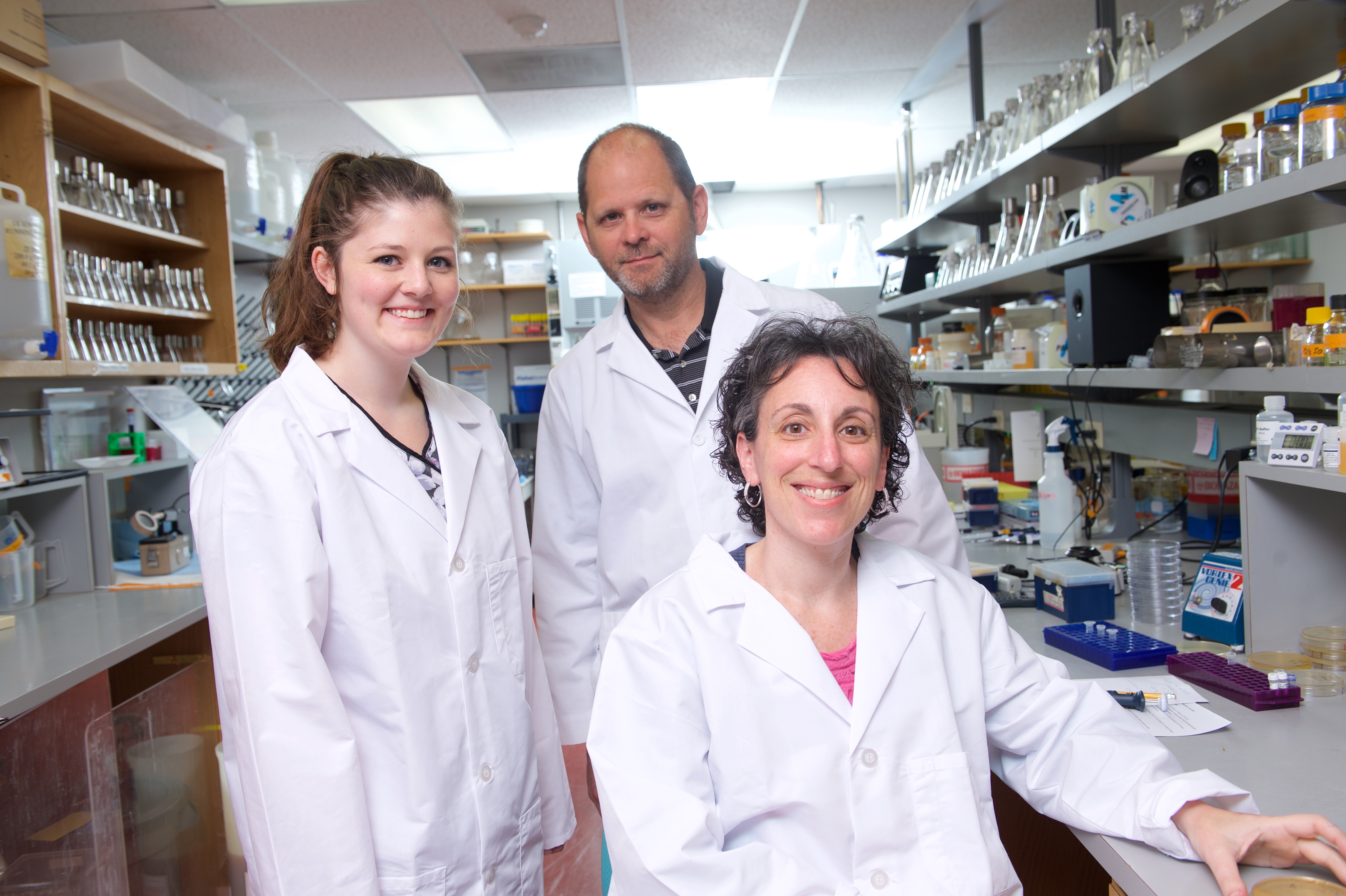
Student Research Assistant: Carley Irlmeier, Microbiology NSF REU program
UI Faculty Host: Tim Yahr, PhD, Professor of Microbiology and Immunology
Project: Regulation of Pseudomonas aeruginosa virulence factors
Testimonial:
I was quite hesitant at first to participate in the FUTURE for Biomedicine program. I have known about it for years, but the logistics of living in Iowa City for a summer seemed too daunting. However, I am so glad I decided to apply, and I wish I had applied for the program years ago. I had been off the bench for 15 years. While I teach several labs and have done a small amount of research with students, I haven’t been a bench scientist for a long time. It was such a fulfilling experience to do science this summer. While I was working full-time this summer, it did not seem like a job. Planning experiments, analyzing data, and working with my student on her presentations was good for me in so many ways. It excited me about science, allowed me to learn new techniques, and allowed me to use my brain in different ways. I didn’t think I missed bench work, but now I realize I did.
Carley and I plan to continue collaborating with Tim Yahr. I also plan to incorporate some of the techniques I did this summer into microbiology lab. I am also thinking about applying for the FUTURE program again next summer. I also plan to try to come back to the University for at least one seminar per semester. I know for sure that my students will benefit greatly from my experiences this summer.
Amy M. Doling, Ph.D.
Professor of Biology
Because I plan to apply to medical school, I originally wanted to participate in the FUTURE in Biomedicine Program to see the “other” side of medicine, so to speak: how research is used to help people. For example, I was interested in how drugs are developed and how researchers make new life-saving discoveries. While I understood research was important to medicine, it wasn’t until this program that I saw hands-on how huge an impact research has on people.
Another goal upon entering this program was to gain real-life experience in the research field, as I had only been exposed to labwork in the classroom at my home institution. I expected to learn how to properly perform laboratory techniques, build on my scientific writing skills, and become an independent thinker. While I was taught how to do all this, I learned so much more. I learned how to become more confident (even when your experiments consistently fail), how to be a team player, and how to ask for help.
If I didn’t know before, I know now that a career in science is meant for me. I enjoy being challenged daily and using critical thinking to solve a problem. I love how science is always changing, always engaging, always new. I like the thought of not having to do the same thing every day.
Thanks to the FUTURE in Biomedicine Program, I have the opportunity to continue research with my professor at my home institution, working collaboratively with the University of Iowa. Through its seminars, the program has taught me about a wide range of scientific careers, and the MD & PhD degree particularly sparked my interest and is a pathway I will definitely consider taking. I am very appreciative to have been able to participate in this program.
Carley Irlmeier
Undergraduate Researcher
Waldorf University
FUTURE in BiomedicineSM Senior Fellow: Gary Coombs, PhD, Associate Professor of Biology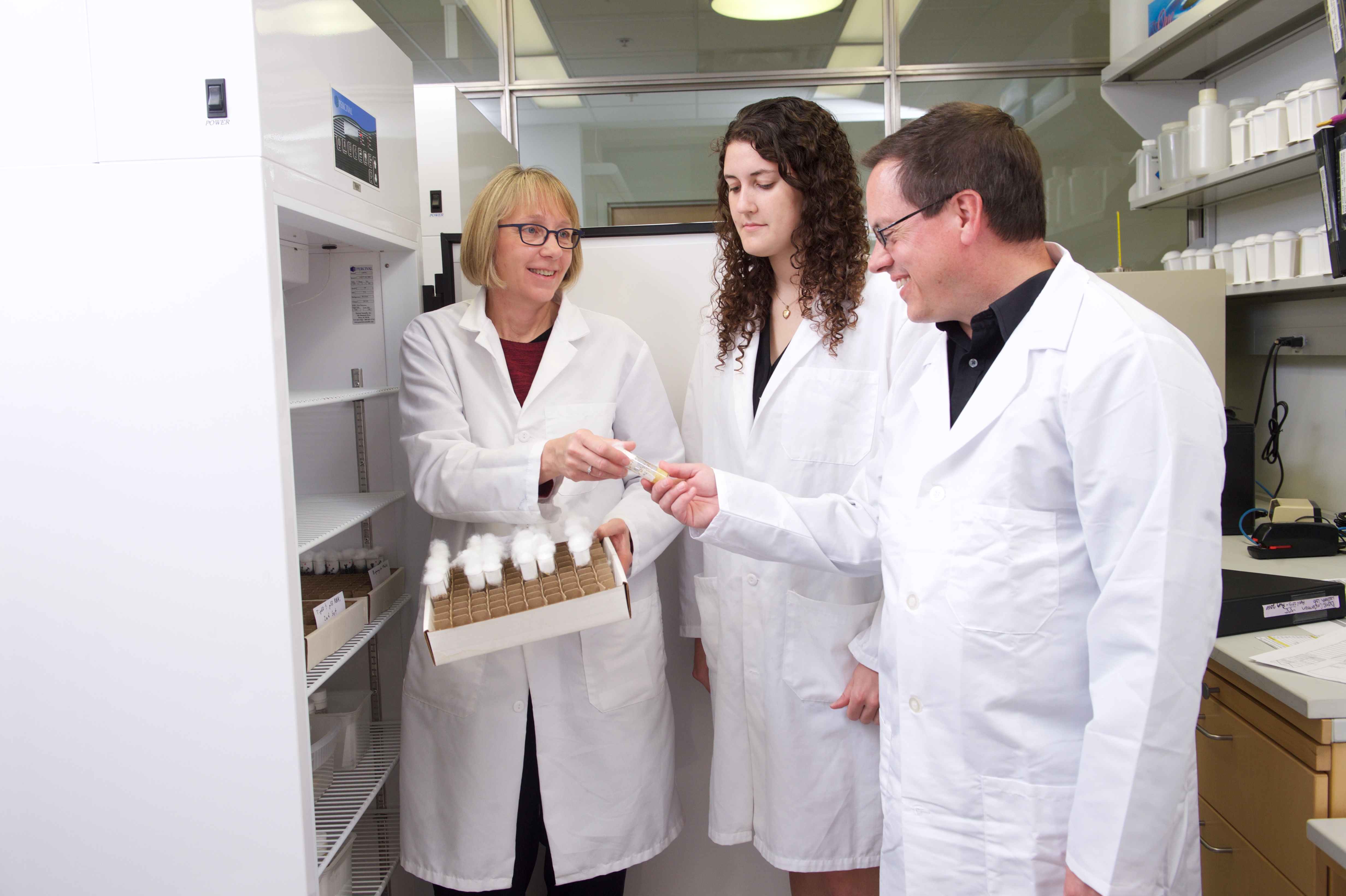
Student Research Assistant: Grace Engelman
UI Faculty Host: Lori Wallrath, PhD, Professor of Biochemistry
Project: Pathological mechanisms of rare types of muscular dystrophy
Testimonial:
This summer was beneficial in several ways. First, from my participation in 2015, data was generated that we planned to submit for publication. My work this summer was able to remove some remaining hurdles and make it possible to start drafting a manuscript. This will be my first paper that includes a Waldorf student as a coauthor. Second, I got to help complete a project that was started by my genetics students this past spring. We are making a transgenic fly with a fluorescent sensor of nuclear envelope damage. This is my first direct participation in making a transgenic animal.
We are hoping that Dr. Wallrath will be able to obtain live imaging movies with these flies that I can share with faculty and students at a symposium at Waldorf next spring. Third, we have established new projects, including gel retardation studies, for several of my classes in the upcoming year that will give my students exposure to purposeful research with a possibility of publication. Finally, I attended the Holden Comprehensive Cancer Center retreat, where I got new insights into a separate project I've been working on that involves iron metabolism from a discussion with Dr. Doug Spitz, and established a collaboration with his lab to study an iron chelator I worked on several years ago.
Gary Coombs, PhD
Associate Professor of Cell and Molecular Biology
University of Northern Iowa
FUTURE in BiomedicineSM Senior Fellow: Marek Sliwinski, PhD, Associate Professor of Biology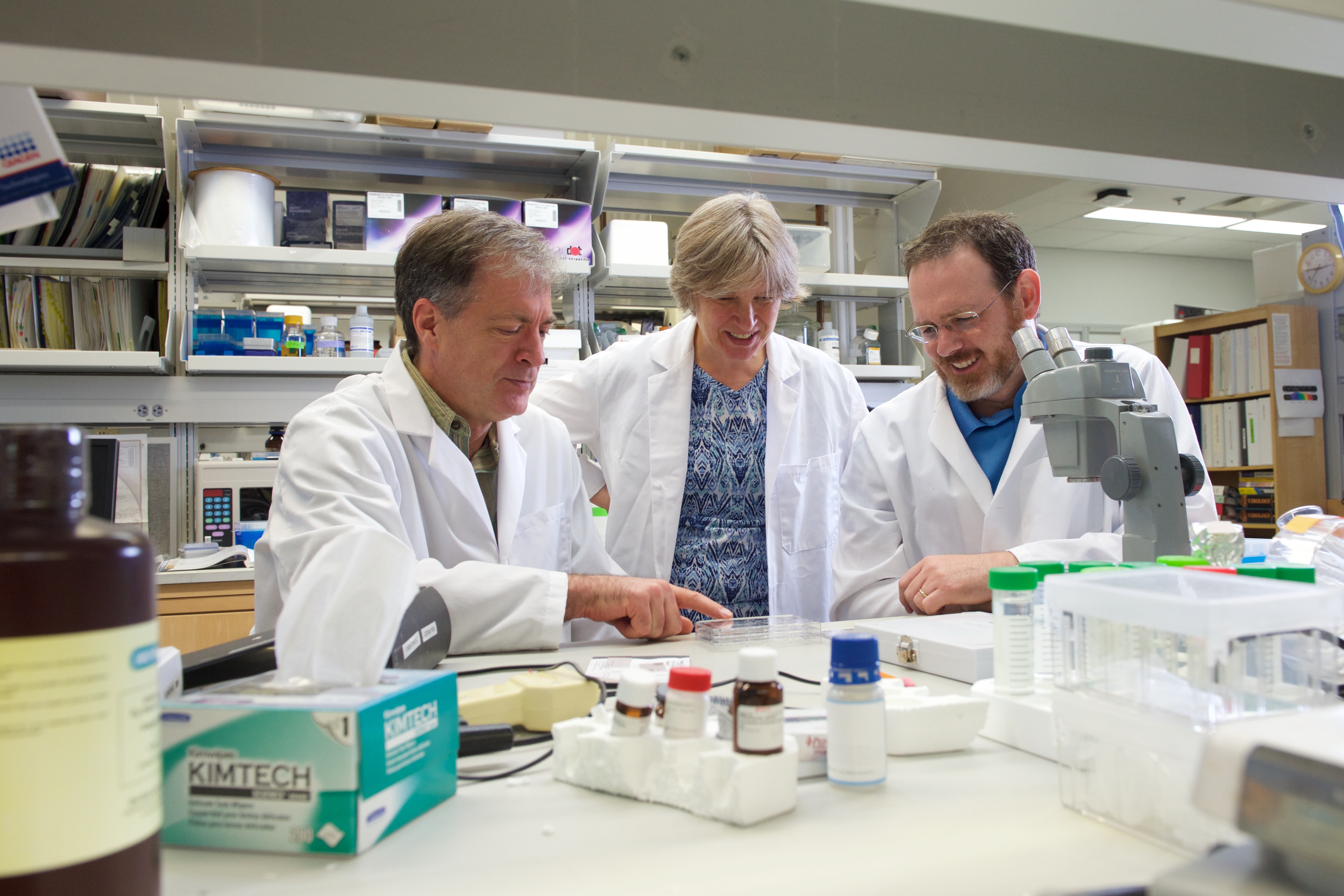
UI Faculty Host: Al Klingelhutz, PhD, Professor of Microbiology and Immunology
Project: Ebola Virus Infection and Transmission in Skin
University of Northern Iowa
FUTURE in BiomedicineSM Fellow: Ali Tabei, PhD, Assistant Professor of Physics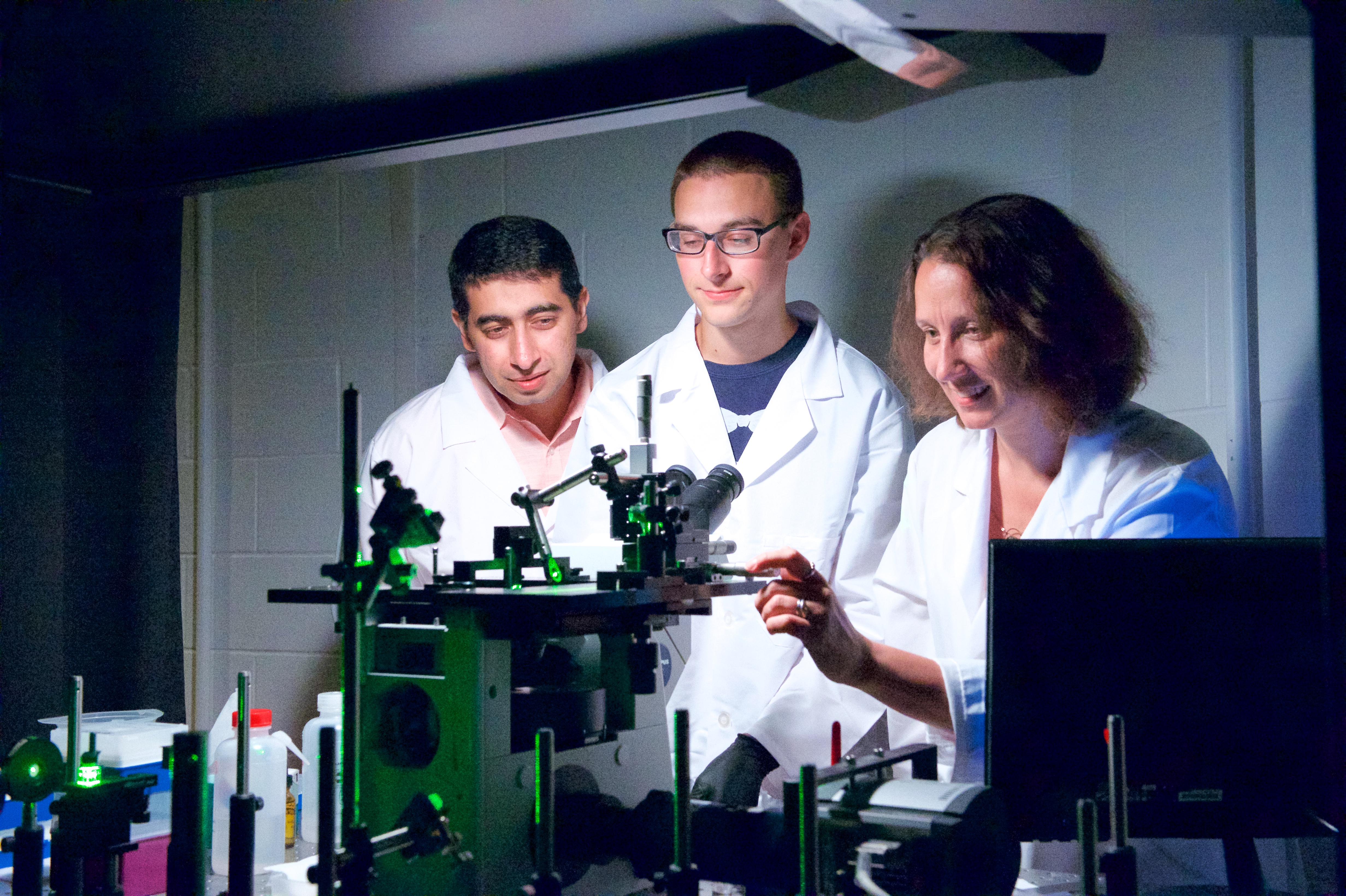
Student Research Assistant: Joseph Tibbs
UI Faculty Host: Maria Spies, PhD, Associate Professor of Biochemistry
Project: Single-molecule analysis of homologous recombination
Testimonial:
I am an assistant professor in the Physics Department at the University of Northern Iowa (UNI). My research area is theoretical/computational biological physics.
UNI, and especially my department, embrace scholarly activities. However, as a cross-disciplinary researcher in the field of biological physics, collaboration opportunities are typically not available in my own Department. My research career strongly depends on building a collaborative cross-disciplinary network. The "FUTURE in Biomedicine" program provided me an excellent opportunity to do collaborative research in the lab of Dr. Spies in the Biochemistry Department and build a cross-disciplinary network within the Carver College. Through my application process, Dr. Shea was very helpful in assisting me to find a host PI, which our research interests overlap.
The strength of the Carver College of Medicine in both clinical research and top notch fundamental research plus its diverse multidisciplinary environment has made this program an ideal opportunity for me to further my academic career. In the lab of Dr. Spies, along with my student, we are working on numerical methods for analyzing the time series of single molecule experiments obtained from "total internal reflection fluorescent microscopy " (TIRFM). The primary focus of Dr. Spies' lab is to understand the molecular mechanism of homologous genetic recombination. Using TIRFM, they study the real-time kinetics and regulatory mechanism of the RAD51 nucleoprotein in the presence of other regulators or inhibitors. This protein is a key player of homologous genetic recombination. Homologous genetic recombination is a crucial mechanism in DNA repair and defects in this mechanism can lead to cancer.
The whole experience was unique for my student and me. As a theoretical physicist, my background in biology is limited. Joining Dr. Spies lab, I was fortunate to be introduced to a new area of science and get a chance to learn and implement new numerical and image processing techniques for analyzing the TIRFM movies, such as empirical Bayesian methods. Although I have collaborated with many experimentalists in the past, I have never had the opportunity to be in a wet lab physically. In the past, I was usually provided with the already gained data from our collaborators and would seldom see behind the scenes. For me, observing the kind of challenges and roadblocks the researchers go through within a wet lab was very educational for me. Most, importantly under an excellent mentorship provided by Dr. Spies and her talented graduate students, my student was able to perform wet lab experiments and in parallel work with me on numerical codes to analyze the data.
The FUTURE program provided me a doorway for a sustainable research collaboration with Dr. Spies and the University of Iowa. Second, it offered me the chance to involve undergraduate students from my Institute so that they can gain research experience in a top tier lab and have the opportunity to work with state of the art facilities that are not available at UNI.
I am looking forward to implementing some of this summer research in the form of small term projects in a computational physics course that I teach.
Ali Tabei, Ph.D.
Assistant Professor of Physics
The FUTURE program was an amazing experience because I got paired with a PI from the University of Iowa and a mentor from my home university who really cared about me and wanted me to grow as a researcher. I was an active participant in research, and I developed a great relationship with my lab here at the University of Iowa. This program has impacted my long-term goals and plans, as well. It was very educational to see the cutting-edge techniques and advanced technology that this university has, as opposed to the research opportunities I had already been exposed to elsewhere. This has made me excited to pursue an advanced degree in biomedicine at this or another graduate university.
However, the immediate benefits of this experience were also important. I learned new techniques that crossed interdisciplinary lines. I gained skills in biochemical, biophysical, and computational techniques. I am currently writing data analysis code that this and other labs will likely use to process important experimental data. The work I did was fulfilling, and I plan to continue collaboration with this lab throughout the coming year. The end result of this project was both satisfyingly concrete and the basis for a sustainable partnership with the host lab. This partnership will, ideally, be very productive for some time to come.
I have thoroughly enjoyed my time in my host lab, and I would recommend the research program at the University of Iowa to anyone interested in biomedical studies. The FUTURE program is what introduced me to the great opportunities available here, which I had previously never known existed. All in all, I am grateful to the FUTURE program for making my summer productive, educational, and fulfilling.
Joseph Tibbs
Undergraduate Researcher

